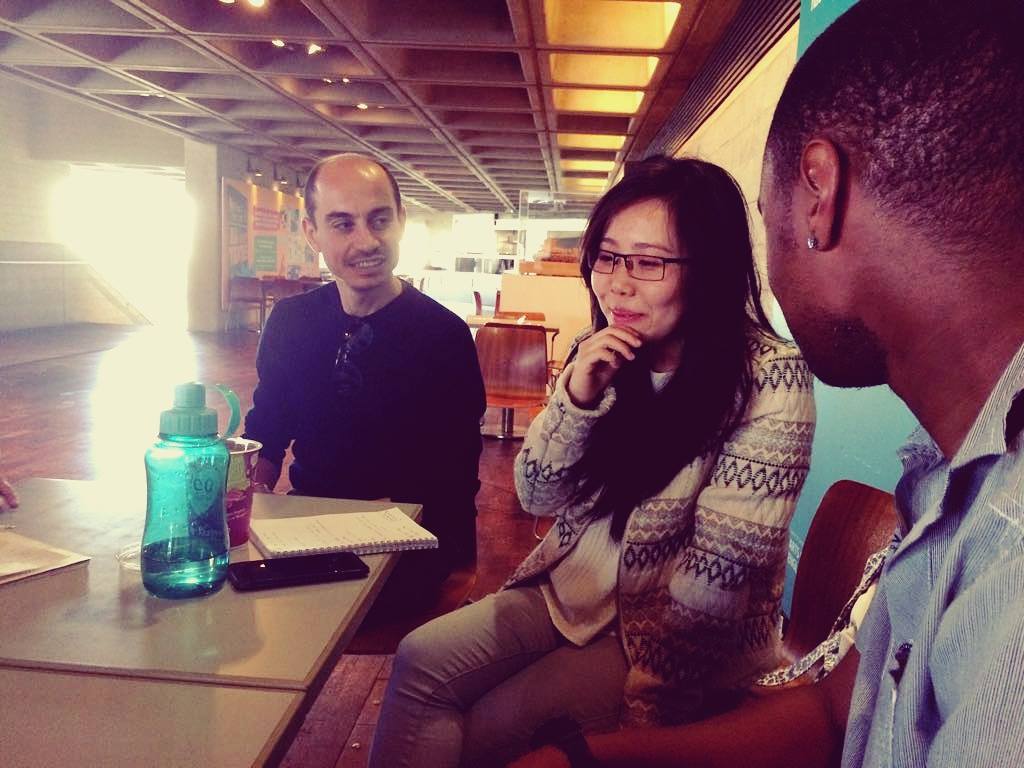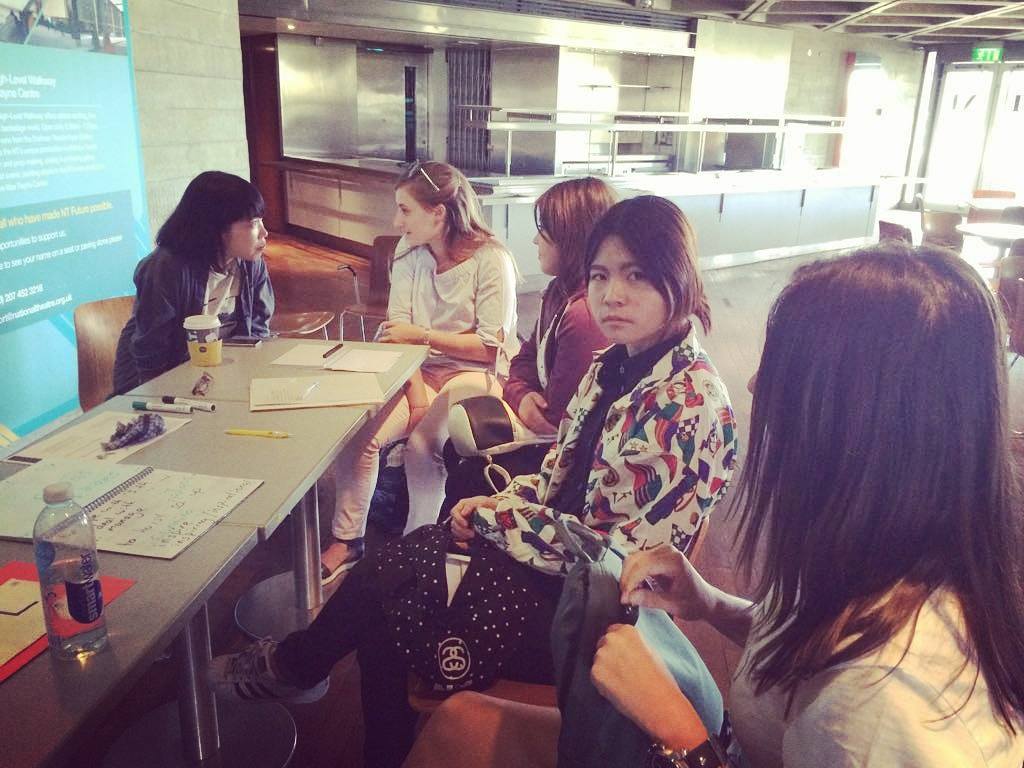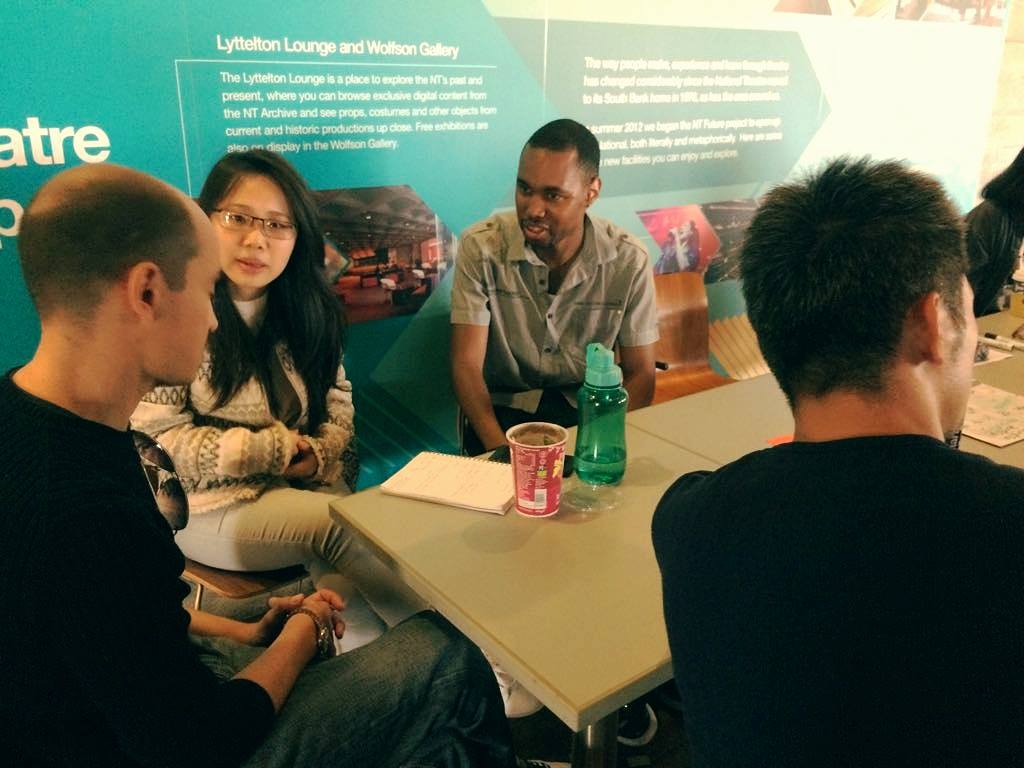English Pronunciation London Meetup
English Pronunciation London Meetup
This was our first week of English Pronunciation London Meetups for conversation since the summer break. People from a number of countries, including for the first time Haiti, came to practice their fluency and pronunciation in class.
We talked about all kinds of things including the worst places in each other’s countries. Although Ecuador’s industrial towns may look ugly, the people are so nice there that you soon forget about it. There are sleazy areas of Tokyo in which you may get hustled by hostesses who try to entice you into the clubs. It’s probably easier for them to do this with the many drunkards in the street. In one part of Seoul English teachers are the drunkards! In China people go to find work in bigger cities leaving ghost towns behind them.
We learnt that the problem with Japanese football is that the players learn to pass well but are afraid to shoot. There is a deep sense of shame in Japanese culture about failure and this affects the way they play football.
Using the Breath
We looked at how using our breath can support the way we speak so that we can pronounce words clearly and not mumble them at the end. Filling the voice will energy is particularly important when we say long vowels, diphthongs and aspirated consonants. Control of the breath helps us distinguish between voiced and unvoiced sounds as voiced sounds don’t require the breath that unvoiced sounds do. For instance, the breath is important in distinguishing /dʒ/ from /tʃ/, which we practiced. Use of the breath is also essential to tone, stress and intonation.
What Are You Planning For Lunch?
On Friday I asked a very simple question: ‘What are you planning for lunch?’ However, I soon learned that it wasn’t so simple after all. I actually asked it as I would ask a native speaker and this makes a difference. If I had said it very clearly it would have been:
/wɒta:ju:plænɪŋfəlʌntʃ/
But the truth is that saying each word so clearly does not sound natural and I would feel as if I was a talking computer. This would appear to give each word equal stress and therefore equal importance. Word stress can have a significant impact on meaning. I modified ‘are’ as follows:
/wɒtəju:plænɪŋfəlʌntʃ/
Then also:
/wɒtʃəplænɪŋfəlʌntʃ/
A New Word: Skinmanship
Has anyone heard of ‘skinmanship’? Apparently, this refers to the people with whom you feel comfortable making physical contact – so in the UK that means nobody! In different countries we greet in different ways, but it is not likely to be common practice for men to kiss each other on the neck the first time they meet!
This was a great first week back and we look forward to seeing you at our next English Pronunciation London Meetup:




